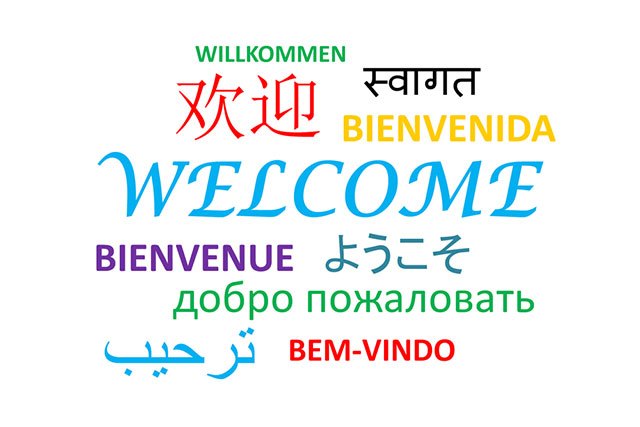Language barriers can create insurmountable challenges for businesses’ overseas operations. How can they be surpassed in order for a reputable brand image and smooth communication to be established?
Today’s global economic landscape has incentivized many businesses to focus on expanding into overseas markets. International business relations, however, have proven to be challenging for companies, some of which struggle to establish efficient communication with their foreign partners. According to statistics, almost half of nearly 600 executives find that language misunderstandings are the main reasons for failed international business deals. The language barriers businesses often face in their international operations can be difficult to overcome and, if not handled correctly, companies can lose their opportunity to establish a credible brand image. Effective communication can be hindered by countries’ linguistic diversity, including differences in accents, the use of idioms or the existence of cultural barriers. Business owners need to adopt an effective strategy for getting past the language barriers, to make the most out of their valuable partnerships and future business opportunities.
Train your employees
 Regardless of whether it is your first time branching out into foreign markets or if you have some previous experience overseas, it is imperative that your staff members are well-equipped to handle the communication with customers from all over the world. A Rosetta Stone survey has revealed that, according to 63% of executives in the UK and Germany, employees need to work on improving their multi-lingual skills. Foreign language training for your employees will give your company a competitive advantage and will make its integration overseas much easier. Foreign customers always appreciate when they are being approached in their native language, which can improve your business’ reputation across markets. Furthermore, language training has the added benefit of giving your employees a chance to develop their personal qualities and improve the company’s internal communications.
Regardless of whether it is your first time branching out into foreign markets or if you have some previous experience overseas, it is imperative that your staff members are well-equipped to handle the communication with customers from all over the world. A Rosetta Stone survey has revealed that, according to 63% of executives in the UK and Germany, employees need to work on improving their multi-lingual skills. Foreign language training for your employees will give your company a competitive advantage and will make its integration overseas much easier. Foreign customers always appreciate when they are being approached in their native language, which can improve your business’ reputation across markets. Furthermore, language training has the added benefit of giving your employees a chance to develop their personal qualities and improve the company’s internal communications.
Have a close focus
However, it is not possible to train your team in every available language. Therefore, when deciding on a strategy for international expansion, it is best to focus on a smaller market where you have the strongest business ties. This will allow you to concentrate on studying the cultural and language specifics of the market and become proficient in communicating in this one particular language. Language barriers are easier to overcome when approached one at a time – spreading yourself thin by trying to lead efficient communication across multiple markets can be detrimental to the quality of the interactions.
Ensure understanding at all stages
 It is important to make sure that there aren’t any questions left unanswered or details not being explained at any stage of your business communication. This means not only encouraging your partners to ask for clarification at any point when they feel necessary but also to practice reflective listening for your own understanding. Cross-cultural communication, especially when it comes to securing a business deal, needs to be approached with patience and attention to detail, in order for it to lead to a satisfactory outcome for both sides. To make the process easier, it is recommended to establish a common corporate language, setting out terms and definitions which can be used by both sides and which can make negotiations go smoother and quicker.
It is important to make sure that there aren’t any questions left unanswered or details not being explained at any stage of your business communication. This means not only encouraging your partners to ask for clarification at any point when they feel necessary but also to practice reflective listening for your own understanding. Cross-cultural communication, especially when it comes to securing a business deal, needs to be approached with patience and attention to detail, in order for it to lead to a satisfactory outcome for both sides. To make the process easier, it is recommended to establish a common corporate language, setting out terms and definitions which can be used by both sides and which can make negotiations go smoother and quicker.
Work with a language service provider
As a business manager, your tasks go beyond ensuring the cohesiveness of your brand message for your foreign customers. Dealing with the translation of complex business terminology by yourself can result in misunderstandings which can cost you important clients and business opportunities. Hence why, at 1-StopAsia, we recommend using the services of experienced translators and interpreters, who can help tailor your brand’s message to the specific audience’s language and culture, making it easy to read and understand. Business language often can be culture-specific and the expertise of language service providers can ensure that there are no misunderstandings from using idioms which the new customers are unfamiliar with.
Develop a multilingual website
Localizing your website is an important step in ensuring that customers from all over the world can familiarize themselves with your brand’s message and ideology. Having the contents of your website translated into the native language of the markets you are expanding into will help you maintain a personal level of communication with your customers and will show that you care about how your brand is perceived internationally.
Provide information across multiple platforms
 Creating marketing materials such as newsletters and brochures in your partners’ native language and following up phone calls with emails summarizing the discussed details are some of the techniques which can be employed for smooth international communications. Social media can also be utilized for facilitating a deeper level of engagement – creating interactive videos and online materials is another way for leading a more straightforward and personal communication. When creating these various materials, avoid using any complex language or terms which are specific to your own culture, as this can be confusing for your partners and might lead to unanticipated reactions.
Creating marketing materials such as newsletters and brochures in your partners’ native language and following up phone calls with emails summarizing the discussed details are some of the techniques which can be employed for smooth international communications. Social media can also be utilized for facilitating a deeper level of engagement – creating interactive videos and online materials is another way for leading a more straightforward and personal communication. When creating these various materials, avoid using any complex language or terms which are specific to your own culture, as this can be confusing for your partners and might lead to unanticipated reactions.
If not properly handled, language barriers can create insurmountable challenges for businesses looking to tap into emerging markets overseas. However, the process of communicating with international business partners can be made much more efficient and pleasant by employing a language service professional, who has a good understanding of the target market’s culture and language. At 1-StopAsia, our expert translators and interpreters will work towards ensuring that your company’s message is easy to read and relatable for foreign consumers. Business owners no longer have to worry about whether their brand’s message has been efficiently communicated to their overseas partners since working with language service providers eliminates these uncertainties and allows more flexibility in all cross-cultural interactions.
